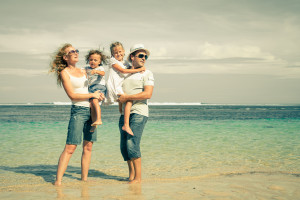- Calls to this hotline are currently being directed to Within Health, Fay or Eating Disorder Solutions
- Representatives are standing by 24/7 to help answer your questions
- All calls are confidential and HIPAA compliant
- There is no obligation or cost to call
- Eating Disorder Hope does not receive any commissions or fees dependent upon which provider you select
- Additional treatment providers are located on our directory or samhsa.gov
How Do I Tell My Spouse I Am Struggling With Binge Eating Disorder?

Binge eating disorder is a severe mental illness that can result in a host of complications if not dealt with appropriately.
Unfortunately, due to the shame and stigma associated with binge eating disorder and eating disorders in general, it can be difficult to be open and honest about the struggles that come with binge eating disorder.
Because there is often guilt experienced with this mental illness, individuals who are dealing with binge eating disorder often isolate from others or attempt to keep their pain hidden to keep normalcy in life. If you have been struggling with binge eating disorder, you may have found this true of yourself in your own life.
Sharing Your BED With Others
It is not uncommon for relationships to become strained under the immense pain, guilt, misunderstanding and frustration that come with this mental illness. You may have found it difficult to share or be honest about the challenges you are facing with those who are closest to you, including your spouse or partner.
Intimate relationships are sacred in the sense that our greatest vulnerabilities are often revealed and known. Growing with another person allows love and friendship to deepen and flourish in spite of the differences that may be experienced.
 Even in the safest and healthiest relationships, it can still be difficult to share about the realities experienced with binge eating disorder, partly because of the complexities of the illness. On the surface level, it may seem as though you are dealing with a lack of self-control or tendency to overindulge. However, these stereotypes are what contribute to the misunderstanding of this mental illness.
Even in the safest and healthiest relationships, it can still be difficult to share about the realities experienced with binge eating disorder, partly because of the complexities of the illness. On the surface level, it may seem as though you are dealing with a lack of self-control or tendency to overindulge. However, these stereotypes are what contribute to the misunderstanding of this mental illness.
Binge eating disorder is much more than a food issue, and many biological and environmental factors contribute to the development of this disease. Being honest about what you are experiencing and involving your spouse in your recovery journey can be a helpful aspect to keeping communication channels open and challenging the misunderstandings that are often created.
Seeking about professional treatment and intervention can also be an invaluable asset in the recovery process for both you and your spouse. Know that you are not alone through this process and that professionals are available to help guide you through the challenges you may be facing.

Crystal Karges
Crystal is a Masters-level Registered Dietitian Nutritionist (RDN) with a specialty focus in eating disorders, maternal/child health and wellness, and intuitive eating. Combining clinical experience with a love of social media and writing. Crystal’s passion is to help others find recovery and healing is integrated into each part of her work.
As a Certified Intuitive Eating Counselor, Crystal has dedicated her career to helping others establish a healthy relationship with food and body through her nutrition private practice.
The opinions and views of our guest contributors are shared to provide a broad perspective of eating disorders. These are not necessarily the views of Eating Disorder Hope, but an effort to offer discussion of various issues by different concerned individuals.
We at Eating Disorder Hope understand that eating disorders result from a combination of environmental and genetic factors. If you or a loved one are suffering from an eating disorder, please know that there is hope for you, and seek immediate professional help.
Last Updated & Reviewed By: Jacquelyn Ekern, MS, LPC on November 3, 2015
Published on EatingDisorderHope.com
Jacquelyn Ekern founded Eating Disorder Hope in 2005, driven by a profound desire to help those struggling with anorexia, bulimia and binge-eating disorder. This passion resulted from her battle with, and recovery from, an eating disorder.

